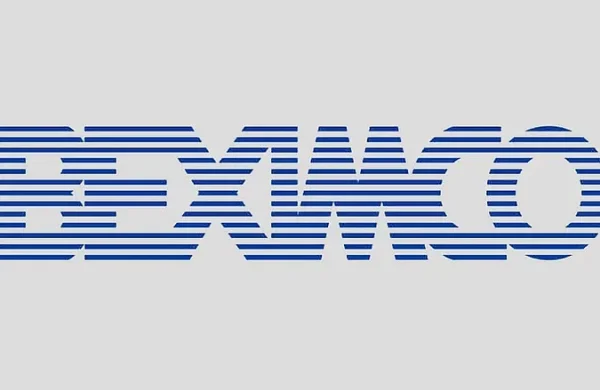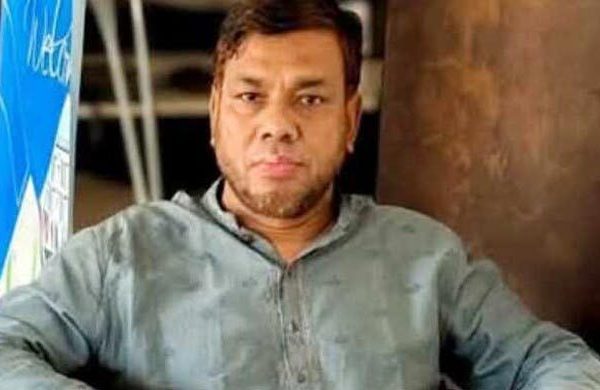‘Receiver’ appointed in Beximco management
- Update Time : Monday, November 11, 2024

Staff Correspondent
Bangladesh Bank has appointed a ‘receiver’ for the leading industrial group, Beximco Group. The receiver’s role will be to ensure proper management of all the institutions under the group. In line with a High Court order, Ruhul Amin, Executive Director of the Central Bank, has been appointed as the receiver.
On 5 September, the High Court directed Bangladesh Bank to attach all the properties of Beximco Group and appoint a receiver for six months to manage them.
Salman F Rahman, former Prime Minister Sheikh Hasina’s private industry and investment adviser, is the vice chairman of Beximco Group. He is currently imprisoned following the fall of the Awami League government due to a student-led mass uprising. Beximco is one of the leading companies in garment export and pharmaceutical manufacturing.
Beximco Group has reportedly filed an appeal against the HC order to appoint a receiver, and a hearing is scheduled for today.
The decision to appoint a receiver was made at a meeting of the central bank’s Board of Directors on Sunday. In the same meeting, it was also decided to engage an international legal or money recovery organisation to assist in the process of recovering funds allegedly smuggled from Bangladesh. Additionally, a forensic audit will be conducted to investigate the operations of the postal directorate’s mobile financial service, ‘Nagad.’
Bangladesh Bank Executive Director and Spokesperson Husne Ara Shikha told reporters, “These decisions will be implemented swiftly as they are the resolutions of the board.”
Using his power, he allegedly withdrew large sums of money from around 20 banks in the name of loans, without proper transparency.
RECEIVER APPOINTED AT BEXIMCO
Bangladesh Bank was instructed to recover the money taken by Salman F Rahman from various banks and to bring back the money sent abroad, as per a High Court order issued on 5 September. The court also directed that a report be submitted within four weeks to inform about the actions taken in this regard. The High Court bench, consisting of Justice AKM Asaduzzaman and Justice Muhammad Mahbub-ul Islam, issued the order after the preliminary hearing of a writ petition.
The writ, filed by senior Supreme Court lawyer Masood R. Sobhan on 5 September, sought information on various issues related to Beximco Pharmaceuticals Ltd. and other businesses of the group, including details on its debts.
According to the court’s order, Salman F Rahman’s Beximco Group has been instructed to appoint a receiver to attach all the group’s assets. The receiver is also tasked with providing information on the current status and payment of loans in all the group’s affiliated businesses. The court has ordered a response to this ruling within four weeks.
Salman Rahman, who was appointed as the former prime minister’s adviser on industry and investment in 2019, became a dominant figure in controlling the financial sector. His opinions were influential in shaping policy decisions related to the financial sector. Using his power, he allegedly withdrew large sums of money from around 20 banks in the name of loans, without proper transparency. In many cases, Bangladesh Bank and the Bangladesh Securities and Exchange Commission relaxed several rules to facilitate these transactions.
According to documents obtained by The media , Beximco Group’s total loan amount (including non-funded loans) from eight public and private banks stands at Tk 398.97 billion. These banks also invested Tk 26.16 billion in various Beximco bonds. Additionally, it is reported that Beximco holds loans with other banks and financial institutions.
According to the documents, Salman began taking reckless loans in the financial sector after the outbreak of the coronavirus in March 2020. His borrowing accelerated further after securing the contract to supply Covid-19 vaccines. By the end of 2020, Beximco Group’s loan from Janata Bank was around Tk 60 billion; it has since increased to approximately Tk 250 billion. Salman Rahman has served as Chairman of IFIC Bank since 2015, and the group’s debt to this bank alone stands at about Tk 80 billion.
Bangladesh Bank officials state that Beximco Group is one of the leading entities in terms of production and employment generation. The appointed receiver’s responsibility will be to ensure that the group’s operations continue without disruption. Additionally, the receiver will also oversee efforts to recover the money that was allegedly withdrawn from the banks without proper transparency.
“These decisions will be implemented swiftly as they are the resolutions of the board,” said Bangladesh Bank Executive Director and Spokesperson Husne Ara Shikha.
According to documents obtained by the media, Beximco Group’s total loan amount (including non-funded loans) from eight public and private banks stands at Tk 398.97 billion. These banks also invested Tk 26.16 billion in various Beximco bonds
LEGAL INSTITUTIONS TO RECOVER MONEY
Money laundering from Bangladesh is a widely discussed issue. In an interview with the Financial Times, Bangladesh Bank Governor Ahsan H Mansur stated that during Sheikh Hasina’s regime, businessmen colluding with the former administration, along with the country’s military intelligence agency, DGFI, were responsible for laundering Tk 2 trillion from the banking sector.
He claimed that the DGFI played a role in taking control of major banks in the country. According to Mansoor, this represents one of the largest bank robberies by international standards.
After the change of government, a new inter-agency task force was formed to oversee the recovering and management of assets smuggled abroad. For the first time, the Governor of Bangladesh Bank has been appointed president of this task force. Besides, Bangladesh Bank has decided to hire an international legal or money recovery organization to assist in the process of recovering funds smuggled out of the country.
It is reported that several international institutions have already engaged in discussions with Bangladesh Bank, and the Bangladesh Financial Intelligence Unit may soon sign contracts with some of these organisations.
FORENSIC AUDIT IN NAGAD
During the Awami League government’s tenure, the operation of Nagad reportedly began with the misuse of power. The company gained an exclusive advantage in acquiring customers, with the outgoing government selecting Nagad for the disbursement of all government allowances. As a result, government beneficiaries were effectively forced to become Nagad customers. There are many questions surrounding the transparency of these allowance distributions, which has negatively impacted the entire digital financial services market.
Although Nagad is marketed as a service of the Directorate of Posts, in reality, it is not owned or controlled by the government. The company never received the final license to operate as a Mobile Financial Service (MFS) provider from Bangladesh Bank. Throughout its operation, influential figures from the Awami League have been linked to the ownership of Nagad. As a result, no regulatory action was taken against the company during the previous government’s time in power.
Among those associated with Nagad’s ownership were Rezwana Nur, wife of former Prime Minister’s Deputy Press Secretary Ashraful Alam Khokon, former MP Nahim Razzak, and Razi Mohammad Fakhrul.
After the fall of the Awami League government on 5 August, Bangladesh Bank decided on 21 August to appoint an administrator to manage Nagad. The next day, central bank director Muhammad Badiuzzaman Didar was appointed as the administrator, along with six other officers as ‘Assistant Officers.’ On the following day, officials from Bangladesh Bank and the Directorate of Posts visited the Nagad office and took control of the entire institution.
Nagad is now operating as usual, but several irregularities have already been detected. In response, the administrator of the institution wrote to the Directorate of Posts requesting a forensic audit of Nagad’s entire operation to uncover full details and identify the beneficiaries. Consequently, Bangladesh Bank has decided to conduct a forensic audit to investigate Nagad’s activities further.
















